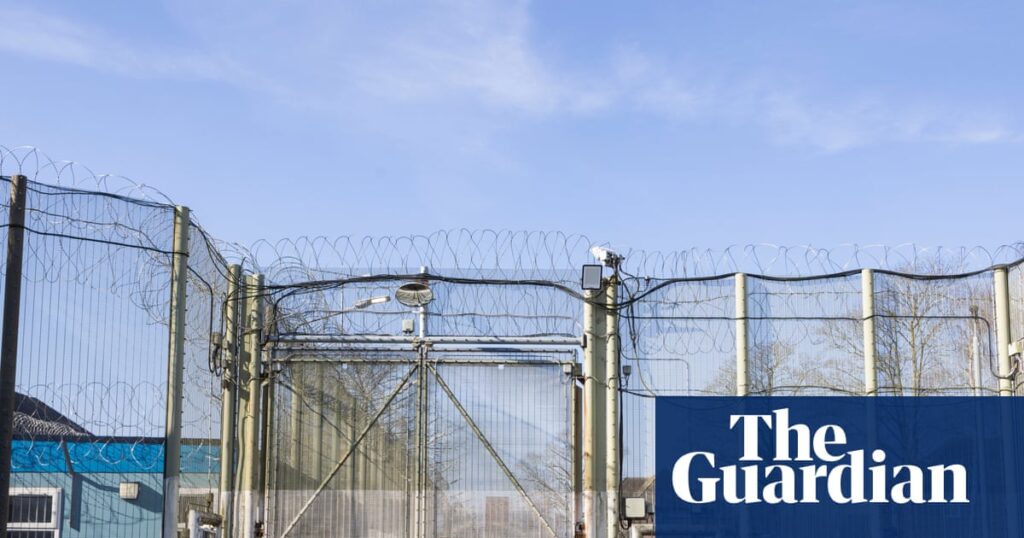Foreign criminals from 15 more countries face deportation before they have a chance to appeal in an expansion of the UK government’s “deport first, appeal later” scheme.
Ministers are extending the scheme, which applies in England and Wales and was restarted in 2023, to cover 23 countries including India, Bulgaria, Australia and Canada.
The policy, which was introduced by the Conservatives in 2014, removes the right of foreign criminals to appeal against their conviction in the UK unless they show they are at risk of harm if they are deported to their country of origin.
It is already operational in eight countries including Tanzania, Finland, Estonia and Belize.
Other countries brought under the scheme by Labour ministers include Angola, Botswana, Brunei, Canada, Guyana, Indonesia, Kenya, Latvia, Lebanon, Malaysia, Uganda and Zambia.
The move is part of the Labour government’s efforts to step up the deportations of foreign criminals to deal with overcrowded prisons and public concerns about crime.
Shabana Mahmood, the justice secretary, announced proposals on Sunday to allow foreign criminals given fixed-term sentences to be deported immediately after sentencing and barred from re-entering the UK.
Those serving life sentences, such as terrorists and murderers, are exempt and will serve their full prison sentence in the UK before being considered for deportation.
The policy has come under fire from two former Conservative justice secretaries who say it risks making the UK a soft touch for foreign criminals, because offenders would not be serving sentences at home.
The former justice secretary Alex Chalk told the Guardian: “I have real misgivings about this, and it could make people in Britain a magnet for crime from foreign national offenders.”
He told Times Radio that “rapists, people who commit child cruelty, aggravated burglars, knife crimers, domestic abusers” who were deported to their home countries “would not have to spend a day in custody”.
“If you have been the victim of an appalling rape that has shattered your life, and you pluck up the courage to go to court, the jury convict this guy [and] within two weeks he’s in Tirana, drinking a cocktail paid by the British taxpayer, and on TikTok laughing at his victim,” Chalk said.
“The real danger is you’re giving a green light to foreign national offenders. You come to Britain, you’re not going to get punished. You’re thinking: the worst that happens to me is I’m released immediately and put on a plane.”
He added: “You’ve got to have a measure of justice so if you come to our country and commit a crime, you expect punishment. I would urge parliament to scrutinise this extremely carefully”.
Robert Buckland, another former justice secretary, said Chalk was right to express concerns. “Many victims of these crimes want justice to be served here first before deportation. Has the government taken the views of victims into consideration in all of this?”
The Ministry of Justice confirmed to the Guardian that foreign offenders deported under the expansion of the “deport first, appeal later” scheme would not necessarily face prison in their home country.
After a legal challenge, the supreme court ruled in 2007 that the “deport first, appeal later” system was unlawful because it infringed on people’s right to give live evidence to their appeal.
The government dealt with the court’s concerns by setting up agreements with several countries for foreign criminals to give live evidence to their appeal hearings using a video link. The scheme was restarted in 2023.
Yvette Cooper, the home secretary, said that “for far too long, foreign criminals have been exploiting our immigration system, remaining in the UK for months or even years while their appeals drag on. That has to end.
“Those who commit crimes in our country cannot be allowed to manipulate the system, which is why we are restoring control and sending a clear message that our laws must be respected and will be enforced.”
David Lammy, the foreign secretary, said ministers were in talks with several countries about extending the scheme.
Foreign offenders make up about 12% of the prison population in England and Wales, with each prison place costing an average of £54,000 each year, according to the government.
Of the new countries covered by the scheme, only Indians are in the top nationalities in the prison population.
Officials said that in the year since Labour came to power in July 2024, 5,179 foreign nationals who had been convicted of crimes had been deported, a 14% increase on the year before.

